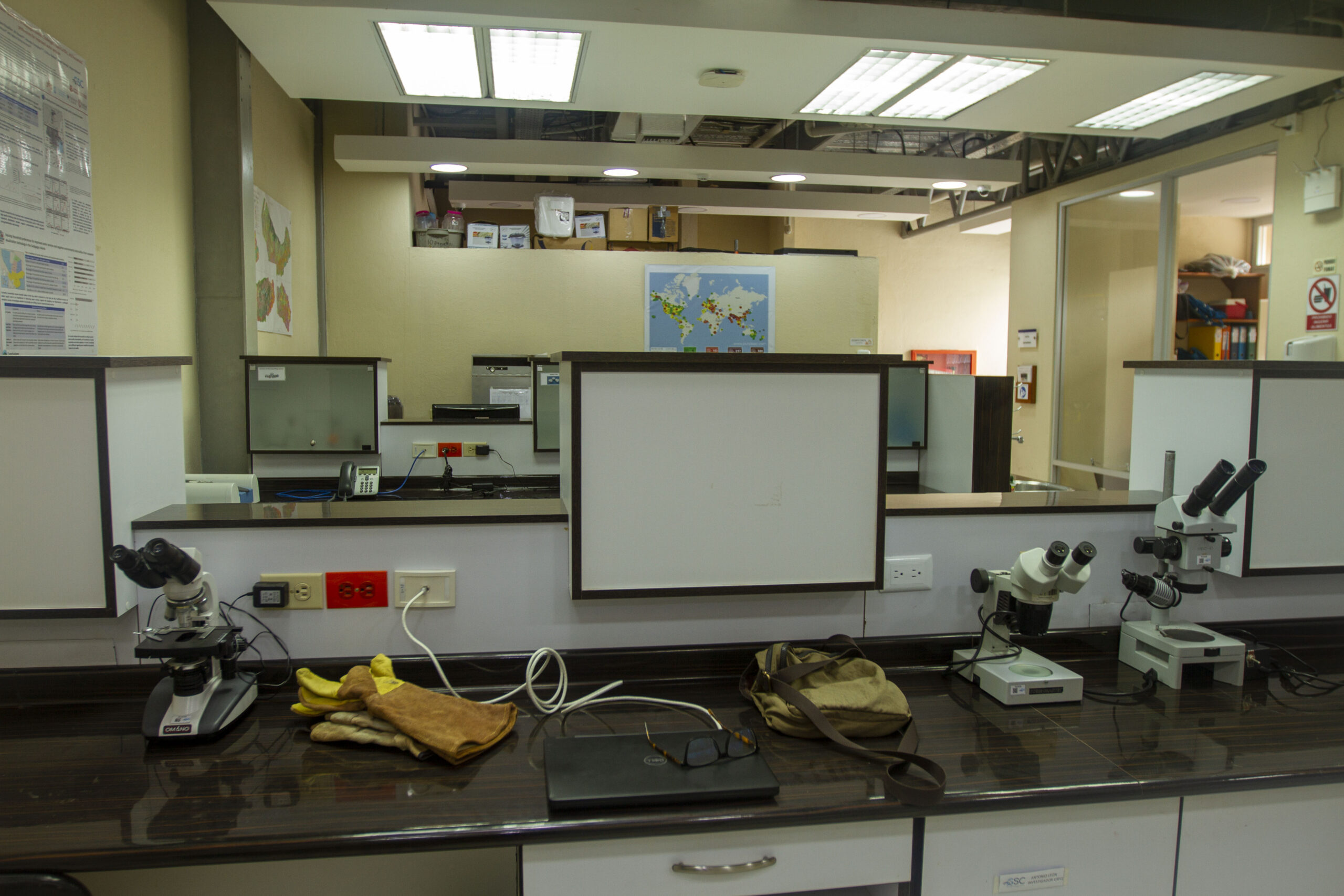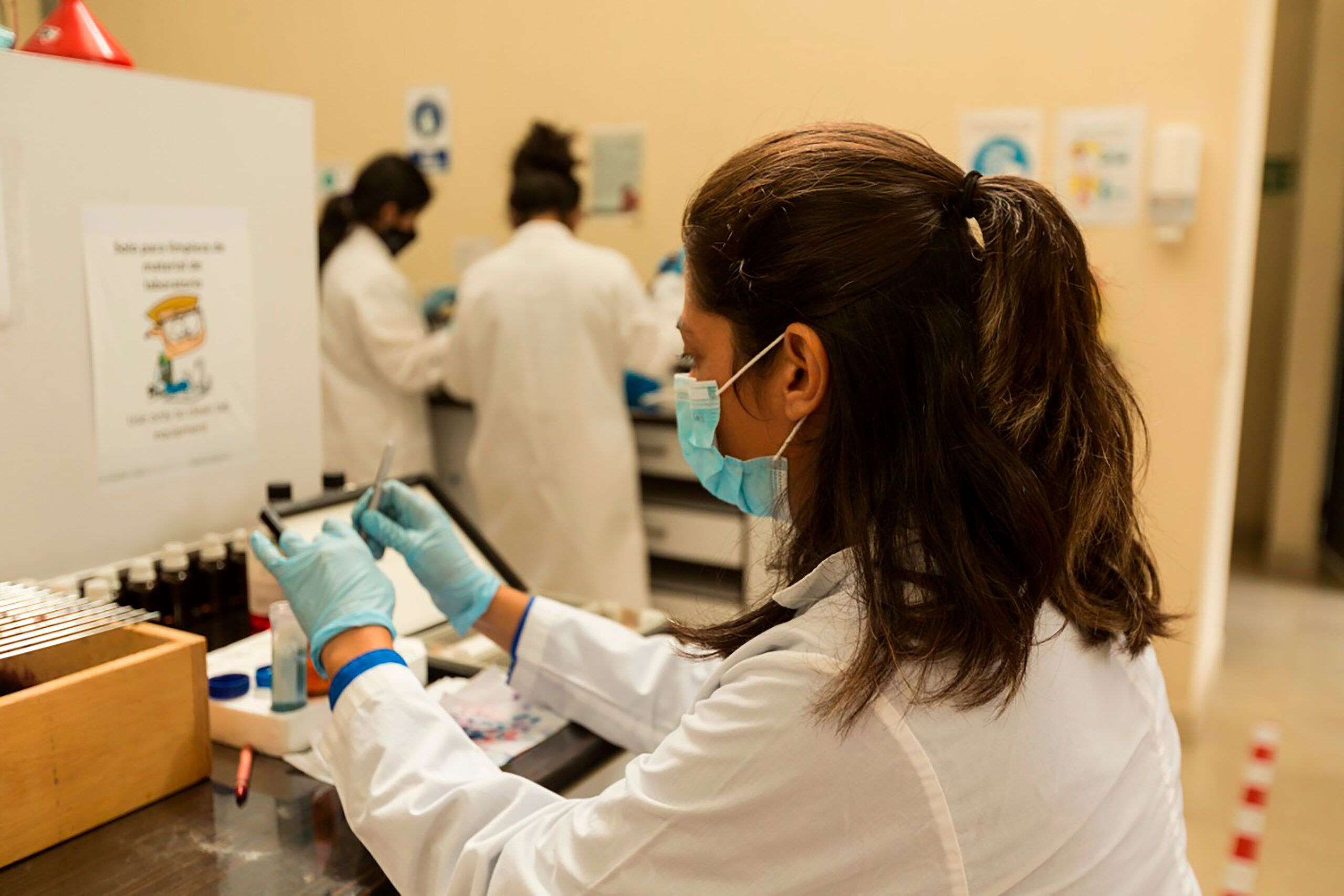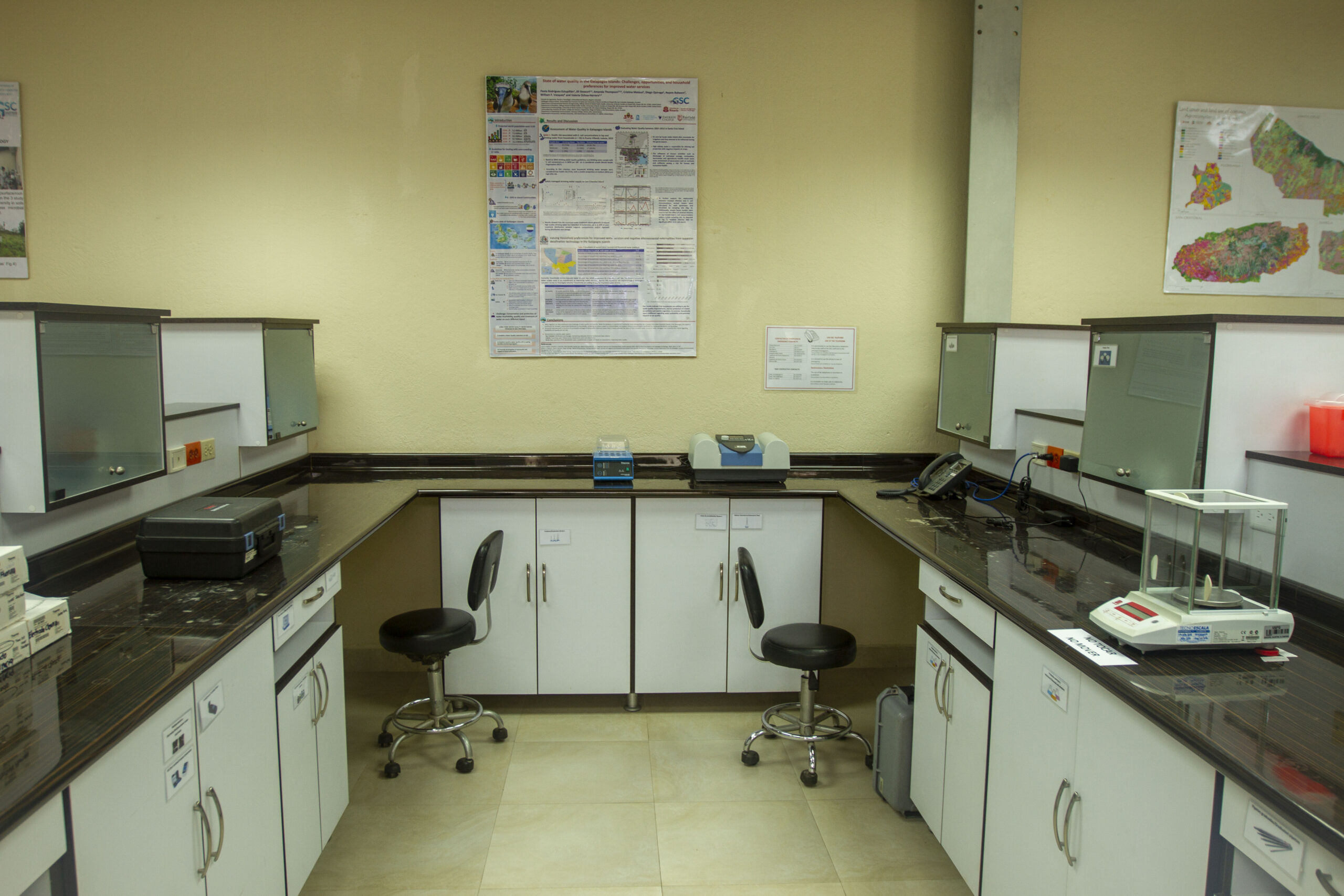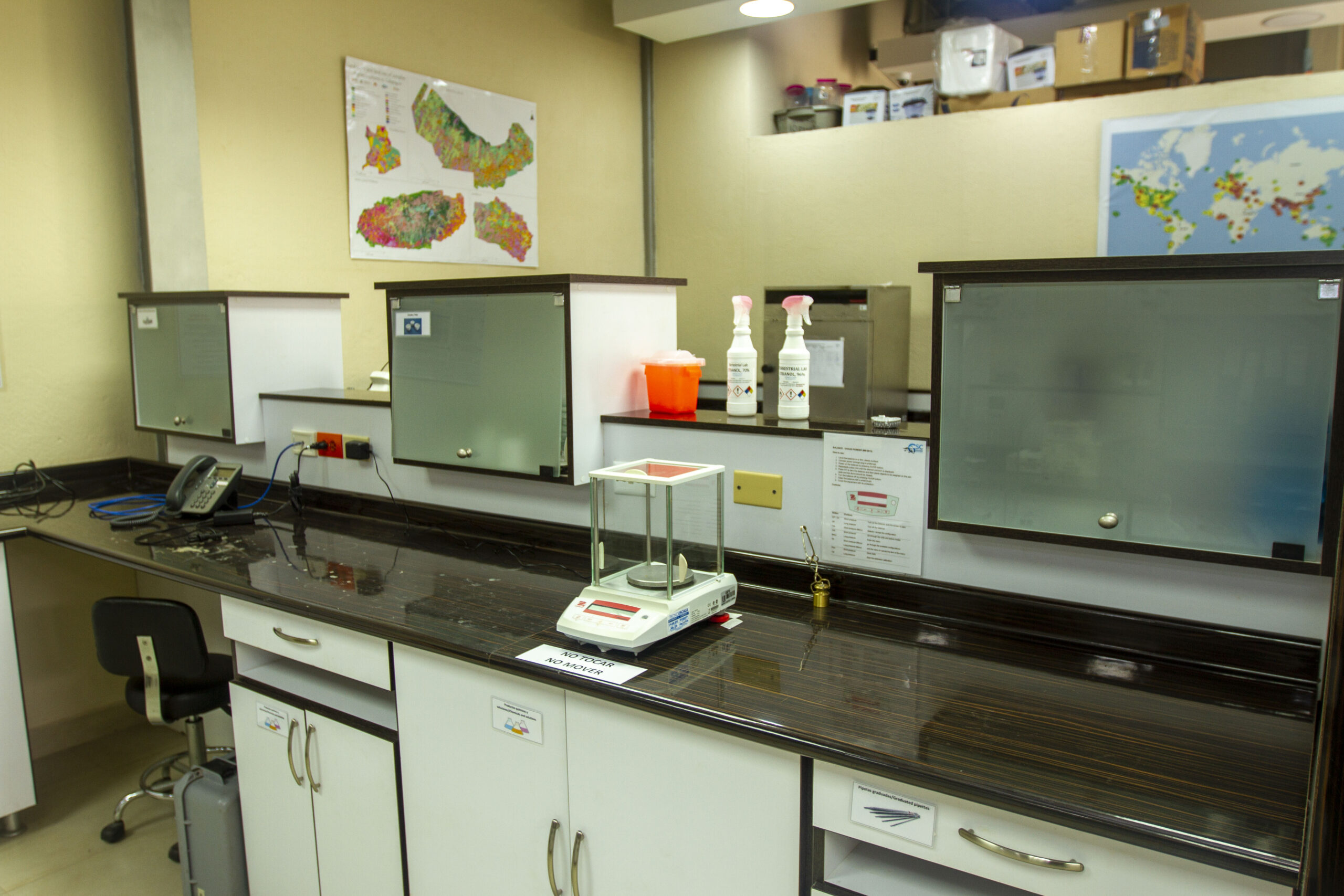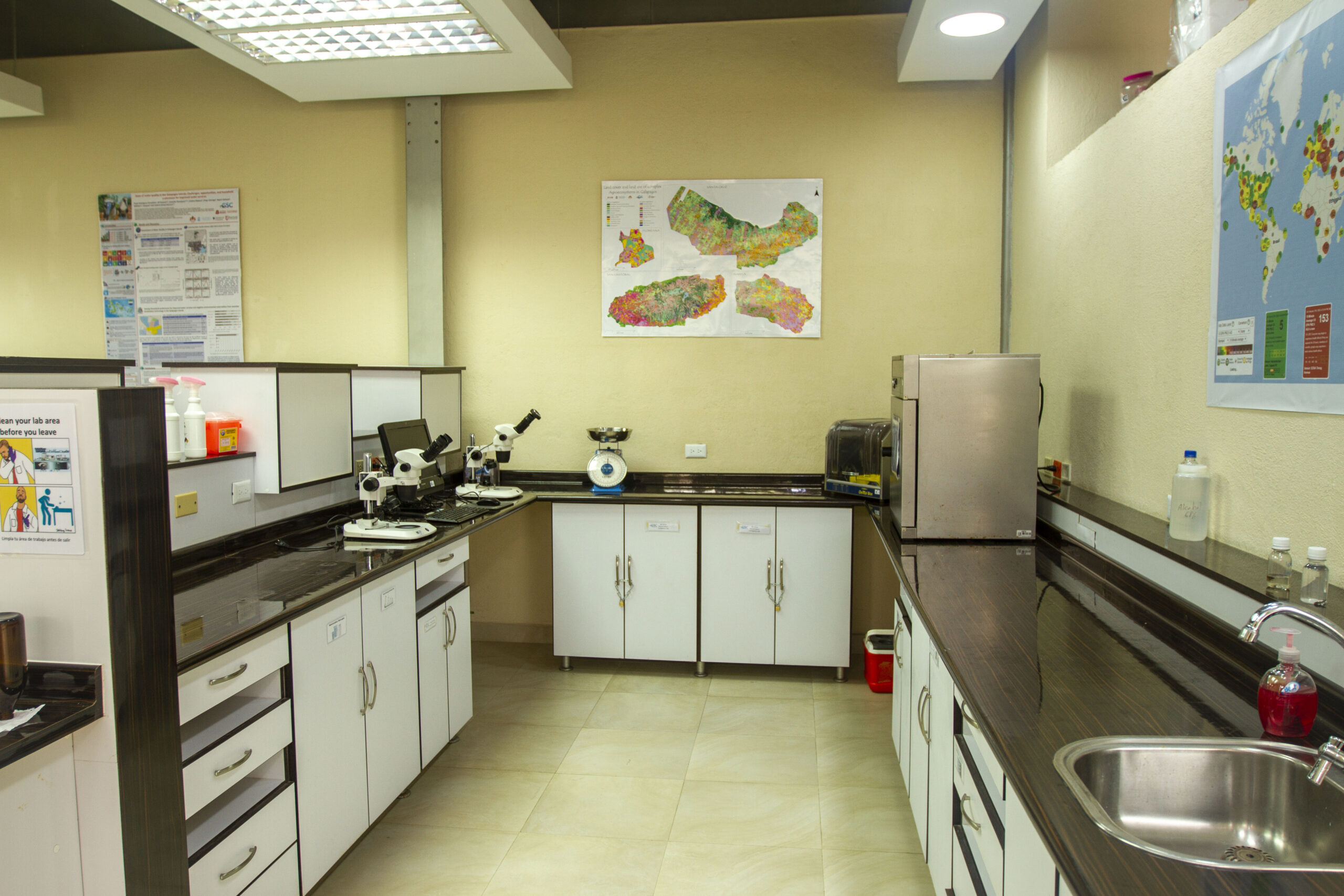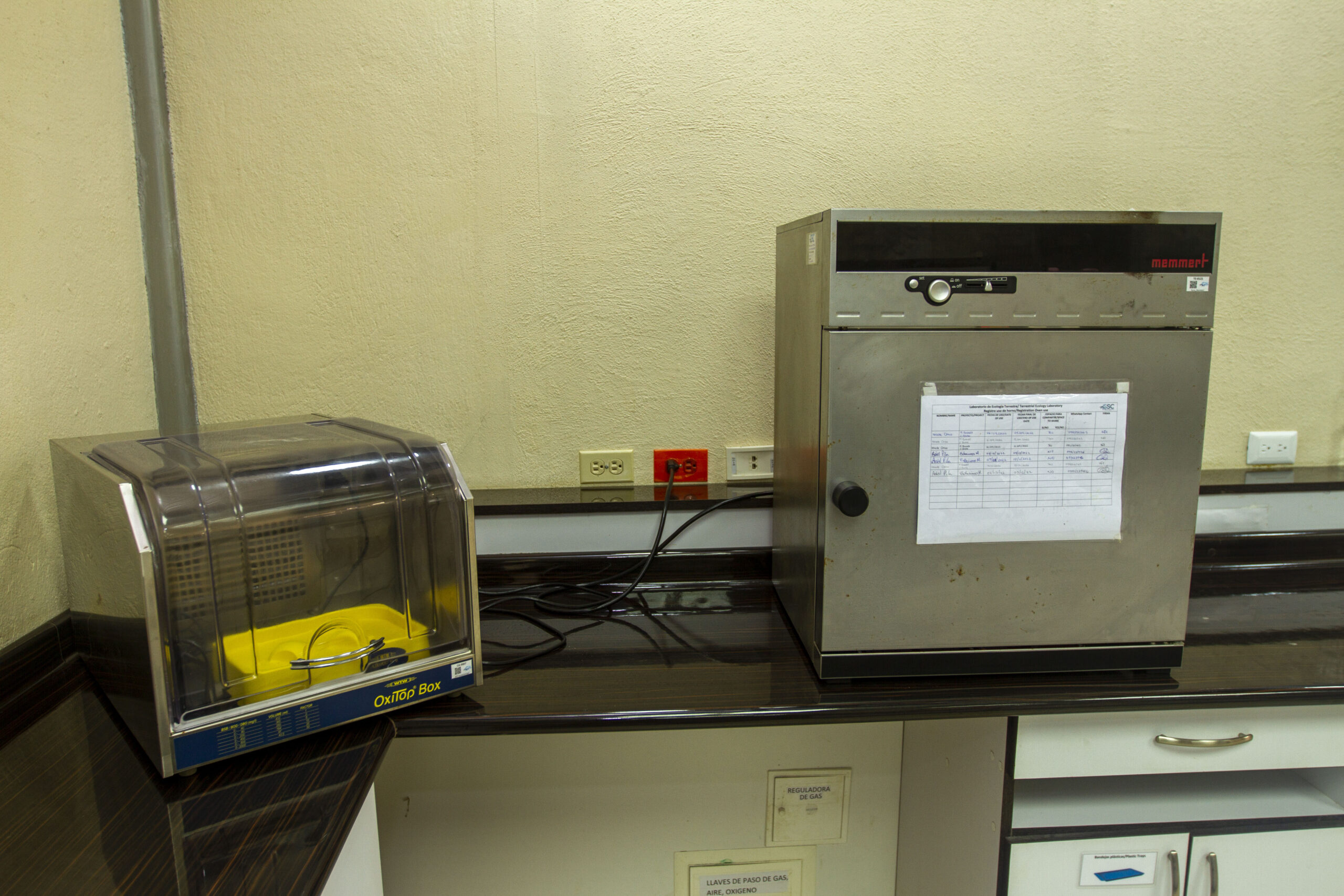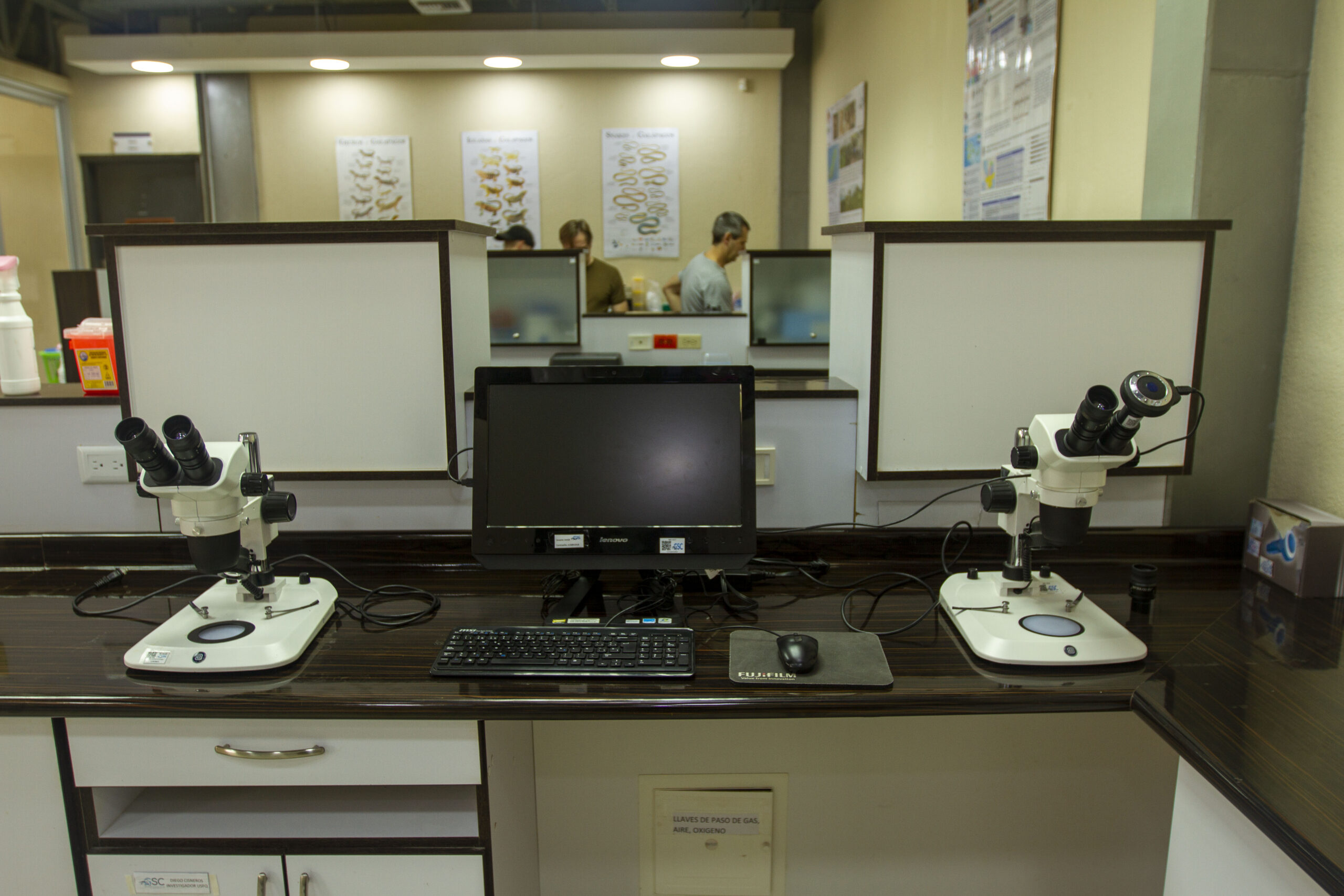
TERRESTRIAL ECOLOGY LABORATORY
The Terrestrial Ecology Lab supports fundamental and groundbreaking ecological research that is essential to conservation efforts and improving quality of life in the archipelago and beyond.
This laboratory aims to facilitate research in the terrestrial environments of Galapagos in eco-physiology, population ecology, community ecology, ecosystem ecology, behavioral ecology, ecology and evolution, and landscape ecology.
Air Quality Projects
The GSC is part of the AERONET network (AErosol RObotic NETwork) which is a federation of terrestrial aerosol remote sensing networks established by NASA and PHOTONS. For more than 25 years, the AERONET network has provided a long-term, continuous, and easily accessible public domain database of aerosol optical, microphysical, and radiative properties for aerosol research and characterization, validation of satellite recoveries, and synergism with other databases. The network imposes standardization of instruments, calibration, processing, and distribution.
The GSC has an advanced measuring device that serves as a basis for air quality studies such as “Air quality in the Galapagos Islands: A baseline view from remote sensing and in situ measurements”, by Dr. Maria del Carmen Cazorla from USFQ, which represents the first study of this topic in the Galapagos islands. Research is also conducted by Dr. William Vizuete from UNC such us “Quantifying the resource and composition of organic marine aerosols in the Galapagos Islands” that seeks to improve knowledge about air pollution in the atmosphere.
Water Quality and Availability Projects
Freshwater is essential for the development and quality of life. Regarding water quality, the GSC actively participates in its monitoring through the project “Long-term monitoring program of San Cristobal Island water quality” run jointly by Dr. Jill Stewart (UNC) and Dr. Valeria Ochoa (Universidad del Rosario), through which updated information is generated involving the local community.
SPACE
Additionally, Dr. Diego Riveros-Iregui (UNC) seeks to determine water availability for human consumption by assessing precipitation inputs such as fog and rainfall, ecosystem water use, water storage, and water availability. The tropics are of particular interest to address global sustainability questions as they face growing populations and demands for freshwater.
Species Identification and Conservation Projects
The GSC´s objective is to increase the knowledge of the natural history, ecology, distribution, and conservation status of Galapagos flora and fauna. Specifically, the GSC prioritizes the study of native and introduced species in order to develop practices that favor their conservation and eradication respectively.
The GSC conducts research in this area, such as ”Terrestrial bird history, distribution and population status in the San Cristobal Island” and “Snakes and geckos in San Cristobal and Española Islands, Galapagos”, both conducted by Dr. Diego Cisneros (USFQ).
The Terrestrial Ecology Lab is equipped with the following:
- Laboratory oven sterilizer Memmert snb – 400
- Universal oven QuincyLab 10gc
- Digital analytical balance – Ohaus Pioneer
- Stereomicroscope Lomo-Lytkarino Mbc-10
- Stereo microscope Fisher Scientific SCQ-series
- Compound microscope
- Fume hood
- Autoclave
- Precision Isomet saw
- Water Distiller
